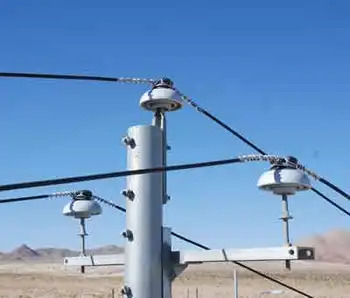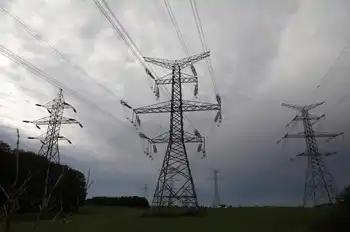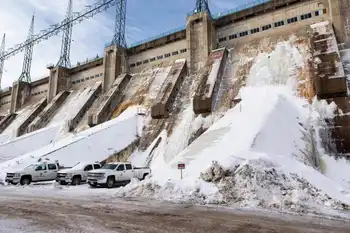New Mexico governor signs renewable energy measures
The governor also signed a bill to stop municipalities from obtaining irrigation and agricultural water rights through condemnation by using the power of eminent domain.
One renewable energy measure allows cities and counties to form financing districts, which could issue bonds to provide financing for residential and commercial property owners to install improvements, including solar, wind or geothermal energy systems.
Property owners will repay the loans over 20 years through a special property assessment.
"It is a law which addresses climate change and makes bottom-line sense for homeowners looking to save money on their energy bills," Sen. Peter Wirth, D-Santa Fe, said in a statement.
Local governments, he said, can tap into more than $2 billion in no-interest bonds from a federal economic recovery package to provide low-cost financing to homeowners and businesses for renewable energy systems. People also could take advantage of federal and state tax credits to cover part of their costs and they should receive rebates on electricity generated by the power system.
Under another bill, a property owner could use a special property tax assessment to repay a private loan for making a solar energy improvement, such as installing a photovoltaic system that generates electricity or a solar thermal system for heating water.
"It's going to make buying a solar system for your house like buying a car. It's going to make it easy, simple and very little, if any, money down," said Rep. Brian Egolf, D-Santa Fe.
Richardson signed the energy measures at a news conference at Santa Fe Community College. The event was held in a room housing a biomass boiler, which uses wood chips to power the system that heats and cools buildings on the campus.
The governor also signed bills providing tax incentives for the production and use of renewable energy.
One measure expands a tax credit for the installation of solar power systems in residences and businesses. Under current law, New Mexico caps state and federal tax credits for solar thermal or photovoltaic systems at 30 percent of the costs, up to $9,000. The legislation will make the state credit 10 percent, which will allow combined state and tax credits of 40 percent. The state credit remains capped at $9,000.
Another bill provides income tax credits for part of the construction costs of utility-scale plants that generate electricity from solar or geothermal energy or advanced coal technology plants. Tax credits can total up to $60 million for a facility.
Last month, companies announced plans for a solar photovoltaic power plant in northeastern New Mexico that will produce 30 megawatts of electricity, enough to supply about 9,000 homes. The plant is expected to qualify for the state's tax credits.
The new water law takes effect June 19. It will prohibit municipalities from condemning water rights owned or served by an acequia or community ditch, conservancy district, or irrigation district.
"This was not an easy decision, but ultimately it was clear to me that on balance the benefits this bill brought to state water policy far outweighed its flaws," Richardson said in a statement. "At the same time it helps preserve our agricultural industry and heritage, it forces our municipalities to think — and act — long term to meet their water needs."
Also signed by Richardson were bills to:
• Allow up to $1 million a year in worker training subsidies to go to "green industries," which include businesses that produce biofuels, organic foods, make solar panels and wind turbines, install solar power system and retrofit water or energy systems to increase conservation.
• Provide for green jobs training programs in partnerships with local governments and Indian tribes. The Higher Education Department is to develop a plan for the training programs, with a focus on rural area and tribal communities.
• Create a state fund that can offer financial incentives to colleges and universities to conduct energy-related research and offer training on alternative energy and energy efficiency to students in vocational programs.
• Provide an income tax credit up to $9,000 for installing ground-source heat pumps, which can heat and cool homes and commercial buildings.
Related News

Closure of 3 Southern California power plants likely to be postponed
SACRAMENTO - Temperatures in many California cities are cooling down this week, but a debate is simmering on how to generate enough electricity to power the state through extreme weather events while transitioning away from a reliance on fossil fuels.
The California Energy Commission voted Wednesday to extend the life of three gas power plants along the state’s southern coast through 2026, postponing a shutoff deadline previously set for the end of this year. The vote would keep the decades-old facilities _ Ormond Beach Generating Station, AES Alamitos and AES Huntington Beach — open so they can run during emergencies.
The state…





